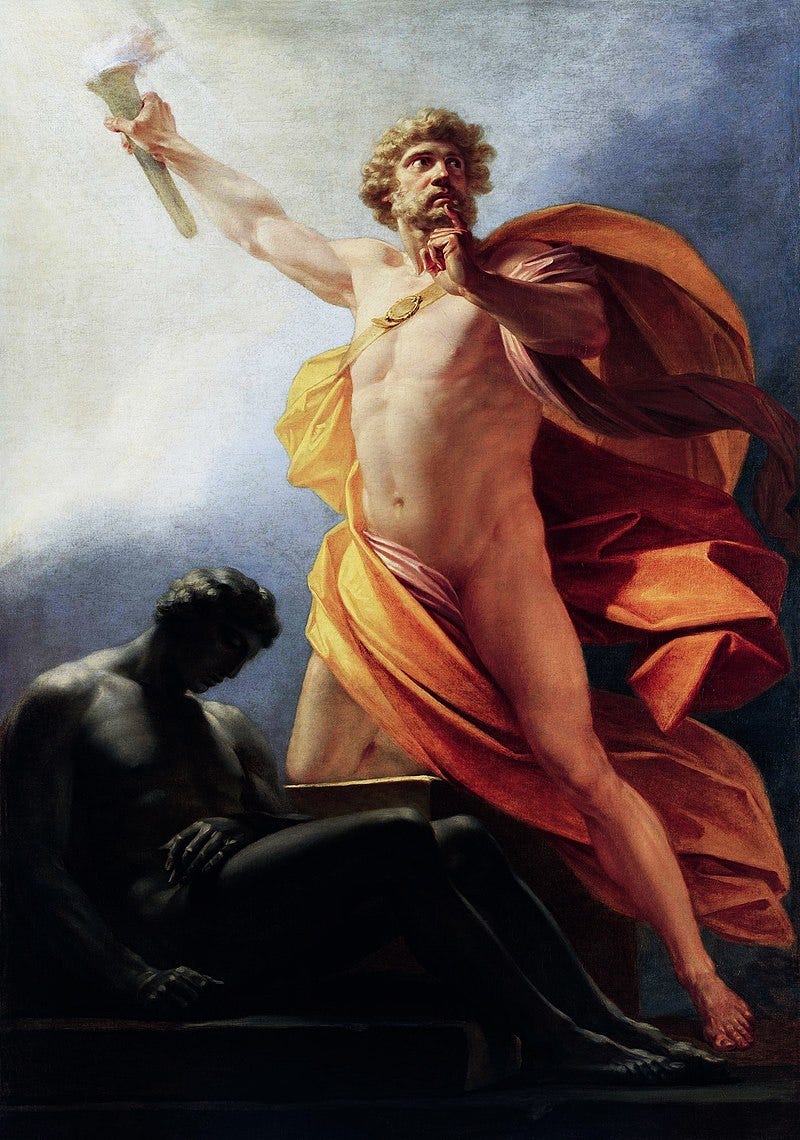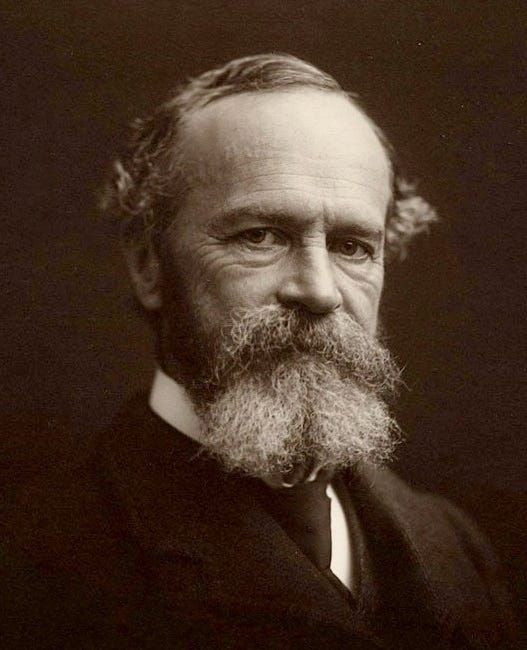Goethe's Prometheus
A Translation from German
In April, 2024 The New Criterion published a translation a friend of mine and I composed of one of Johann Wolfgang von Goethe’s poems: “Prometheus.”
You’re probably familiar with the contours of the Promethean myth. Hesiod introduces the story in his Theogony and revisits it in Works and Days. Aeschylus’s play Prometheus Unbound might be its most famous form though Plato considers the Promethean topos in his dialogue Protagoras.
Prometheus is a Titan who defies the will of Zeus and bring fire to the human beings on earth. In Fuger’s painting above you can see the titan holding fire over a cold and somnolent human. For his disruption of Zeus’s intended order, Prometheus is chained to a rock and tortured by an eagle which eats his liver every day only to have it grow back overnight. Eventually, Heracles sets him free.
Sometimes Prometheus is interpreted as a symbol of human intelligence or technological aptitude. Other times he is a morality tale about the danger of hubristic overreach and playing god with nature.
I will let Goethe’s lyric treatment speak for itself after observing that much of what appeals about it to me is the fierce defiance of the titan in the face of the powerful and parasitical gods. It seems like a poem appropriate for our political moment, burdened as we are by parasitical politicians and elites, but striving nevertheless to cultivate the arts of civilization. If we follow Protagoras’s line of thinking, Prometheus represents the forethought necessary to develop the arts of civilization. To this add the striking posture of Goethe’s Prometheus who scornfully rejects the powerful gods in favor of simple human pleasures like hearth, home, and companionship.
Prometheus by Johann Wolfgang von Goethe Cover your heaven, Zeus, with clouds and mist and practice—like a boy beheading thistles— on these oaks and mountain peaks. But as for my earth, never touch it, nor my hut which you did not build nor my hearth whose warmth you envy me. I know nothing more pitiful under the sun than you gods. You nourish your wretched majesty on taxes and the breath of prayers and you would starve if children and beggars were not hopeful fools. But when I was a child and ignorant whence I came and whither going I turned my erring eye sunward, as if there were an ear above to hear my plea or a heart like mine that could have mercy. Who helped me against the Titans’ arrogance? Who saved me from death, and from slavery? Was it not you alone my holy blazing heart, young, good, deceived— even still streaming thanks to the Sleeping One above. I should honor you? Why? Have you ever soothed the pain of the burdened? Have you ever calmed the sobs of the frightened? Am not I forged to mankind by omnipotent time and eternal fate, masters of us all? Did you fancy somehow I should come to hate life and flee into the wilderness when my boyish, blooming, morning-dreams failed to ripen? Here I sit, forming men in my own image. A race to be like me: to suffer, to weep, to enjoy, and to be glad like me. And to heed you as little as I. -translated by Frederick Amrine and Patrick Whalen
You can read more about our process of translation here.
Poetry and Translation
Translating poetry is one of the best ways to read it. I don’t mean reading poetry in translation which is a necessary, if evil, consequence of our ancestral indiscretion at Babel. No, I meant that undertaking to draft a translation oneself is one of the best ways




